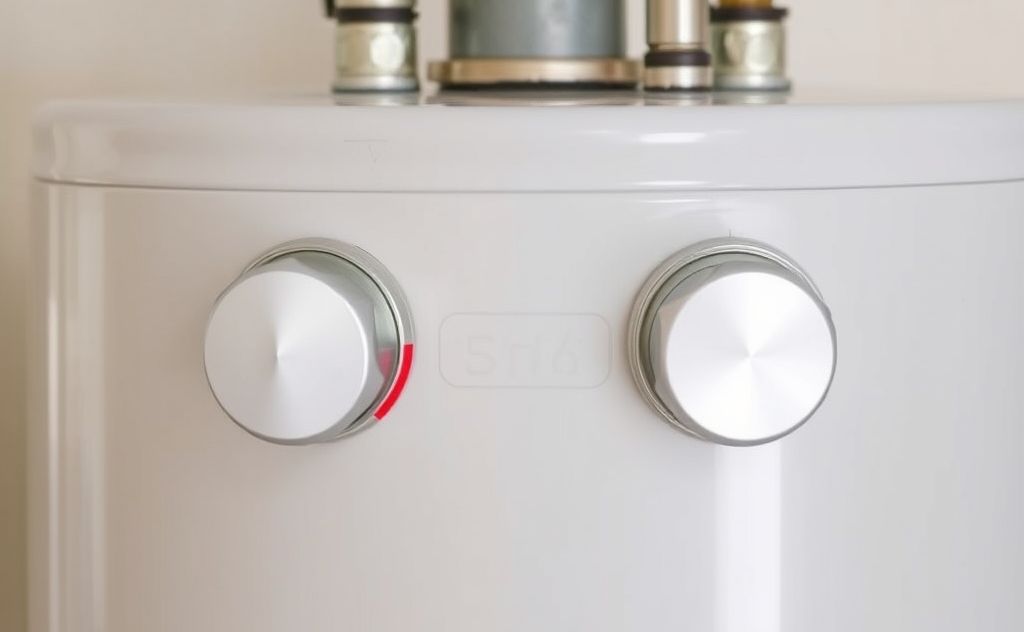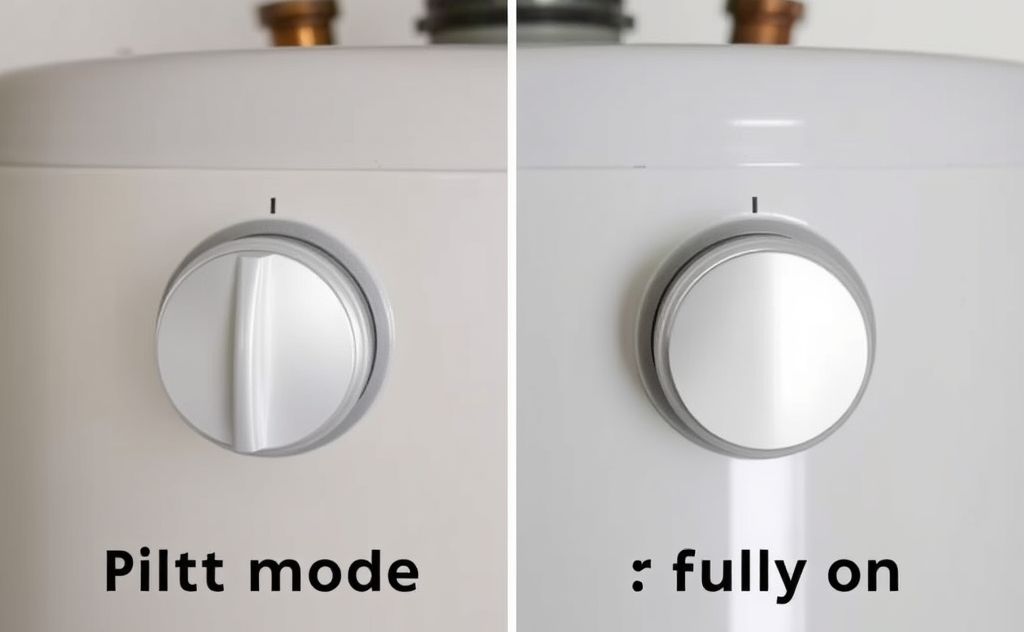Your water heater should be set to on for regular operation, while pilot is used for maintenance or when the heater is not in use to save energy.
Gas water heaters have three settings: On, Pilot, and Off. Knowing when to use each mode can save energy and prevent problems. This guide explains the differences and when to use each setting.

Understanding Water Heater Settings
Your gas water heater’s control knob has three positions:
- On: Both pilot light and main burner operate
- Pilot: Only the pilot light stays lit
- Off: No gas flows to the unit
When to Use “On” Mode
Set your water heater to “On” when:
- You need continuous hot water
- The unit is in regular daily use
- During cold weather months
The “On” position allows the main burner to activate whenever the thermostat calls for heat. This maintains your desired water temperature.
When to Use “Pilot” Mode
Use “Pilot” mode when:
- Going on vacation for more than a few days
- During extended periods of non-use
- When performing maintenance
This setting keeps the pilot light lit while preventing the main burner from activating. It saves gas while making restarting easier.

Safety Considerations
Gas water heaters require proper handling:
- Always wait 5 minutes if you smell gas before relighting
- Never force the control knob – turn gently
- Keep flammable materials away from the unit
If your water heater is flashing red, this indicates a problem that needs attention.
Troubleshooting Common Issues
Pilot Light Won’t Stay Lit
Common causes include:
- Dirty or faulty thermocouple
- Drafts blowing out the flame
- Gas pressure issues
According to Mr. Rooter Plumbing, a malfunctioning thermocouple is the most frequent cause of pilot light problems.
Main Burner Won’t Ignite
If the pilot stays lit but the main burner won’t fire:
- Check the thermostat setting
- Verify gas supply to the unit
- Inspect for blocked vents
Energy Efficiency Tips
Maximize your water heater’s efficiency:
| Action | Savings Potential |
|---|---|
| Use “Pilot” during vacations | Up to 30% gas savings |
| Install a water heater blanket | 4-9% reduction in heat loss |
| Lower thermostat to 120°F | 3-5% savings per 10°F reduction |
For maximum efficiency, consider upgrading to a propane tankless water heater when replacing your unit.
Professional Maintenance
Annual professional maintenance helps prevent issues:
- Flush sediment from tank
- Check anode rod condition
- Inspect gas connections
- Verify proper venting
As noted by Energy.gov, regular maintenance can extend your water heater’s life by several years.
When to Call a Professional
Contact a licensed plumber if you experience:
- Gas odors near the unit
- Water leaks from the tank
- Discolored hot water
- Unusual noises during operation
